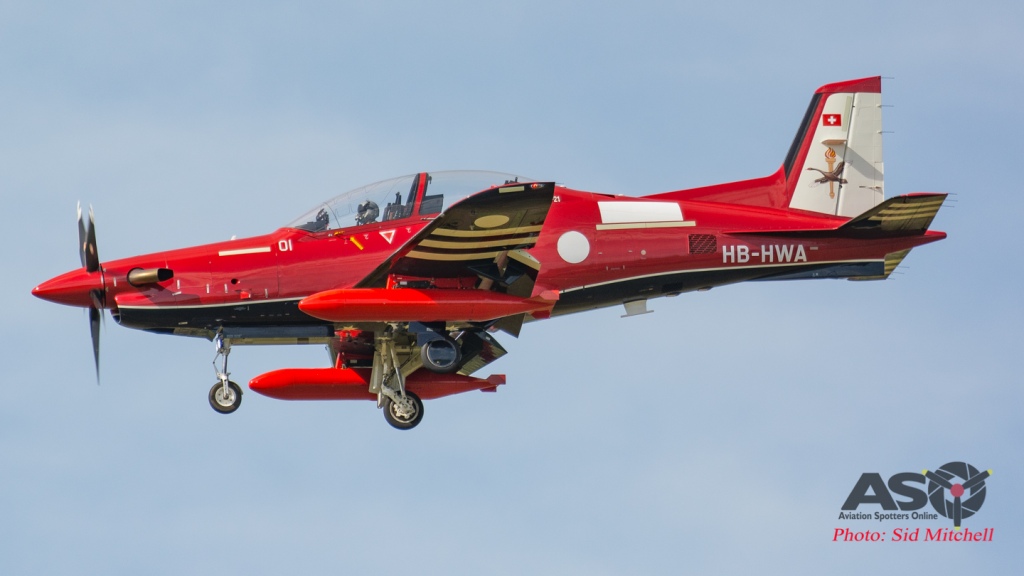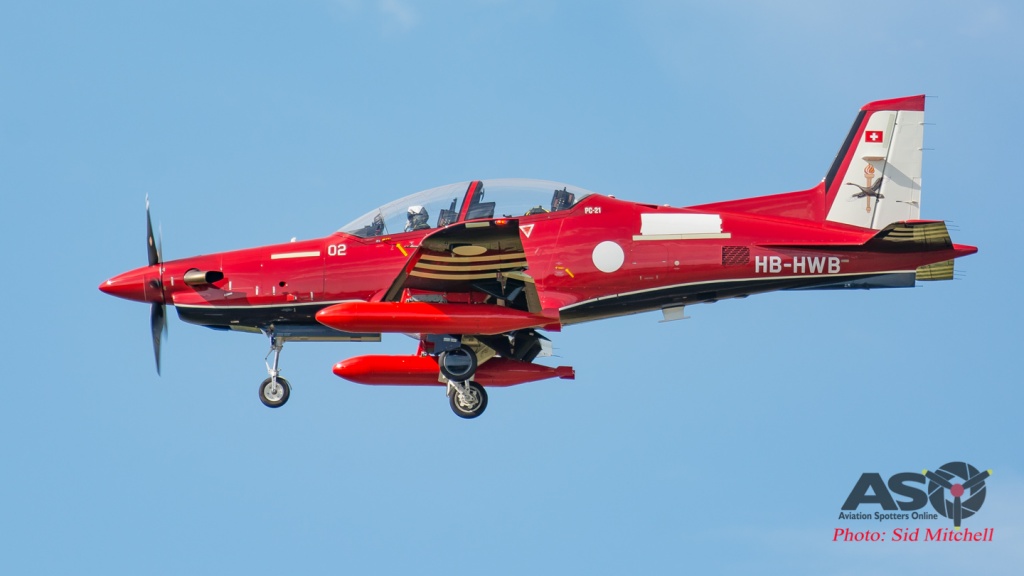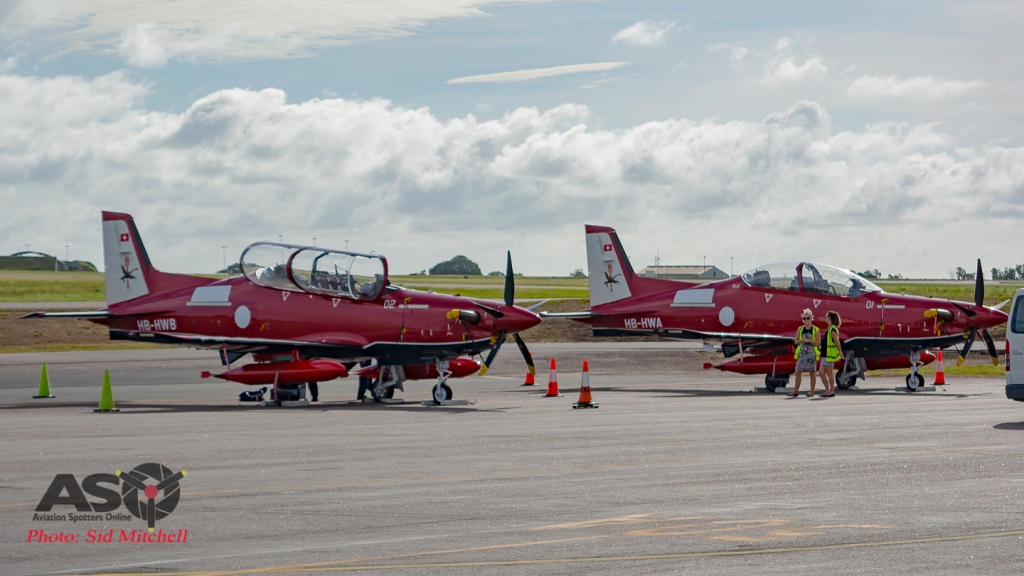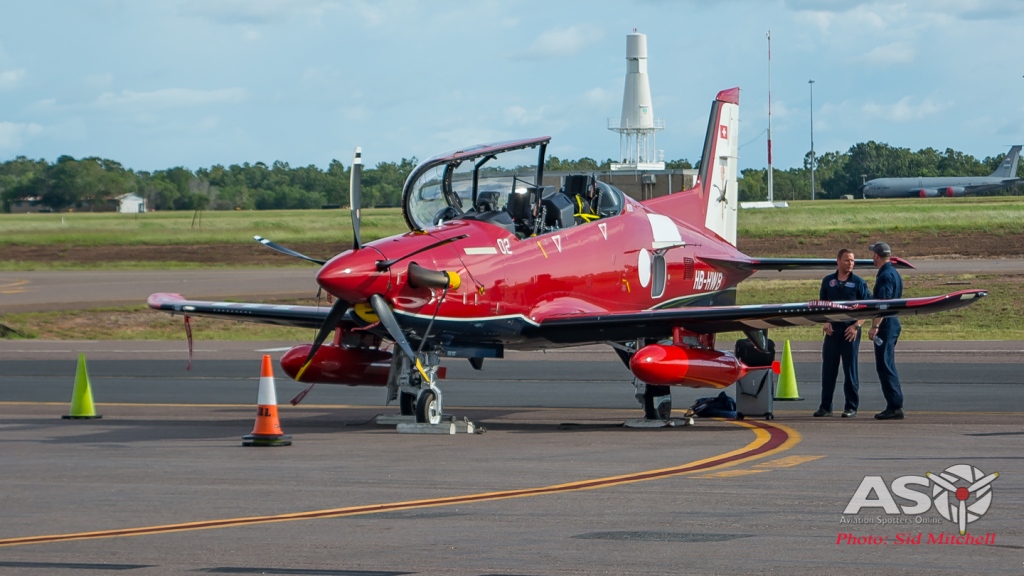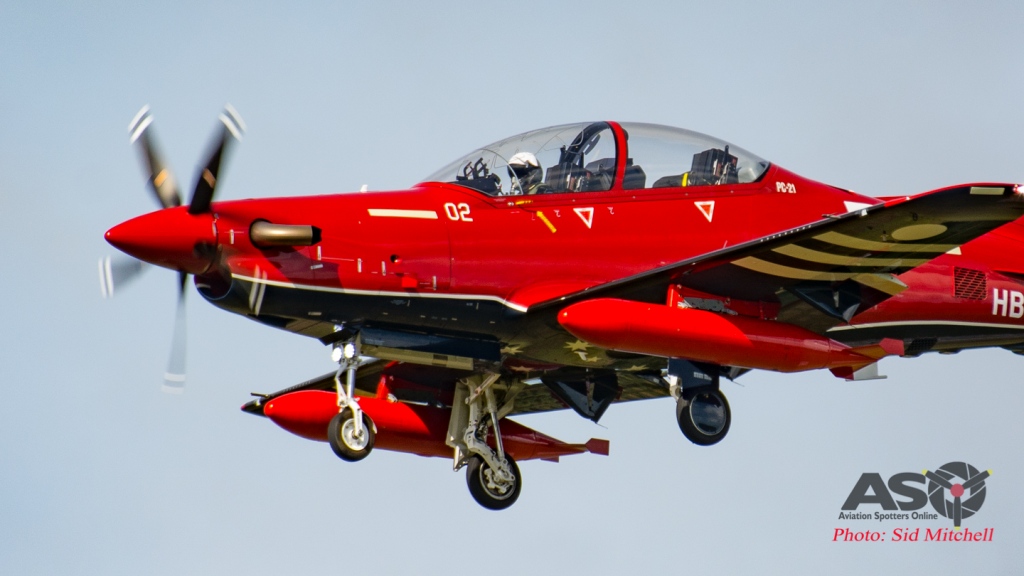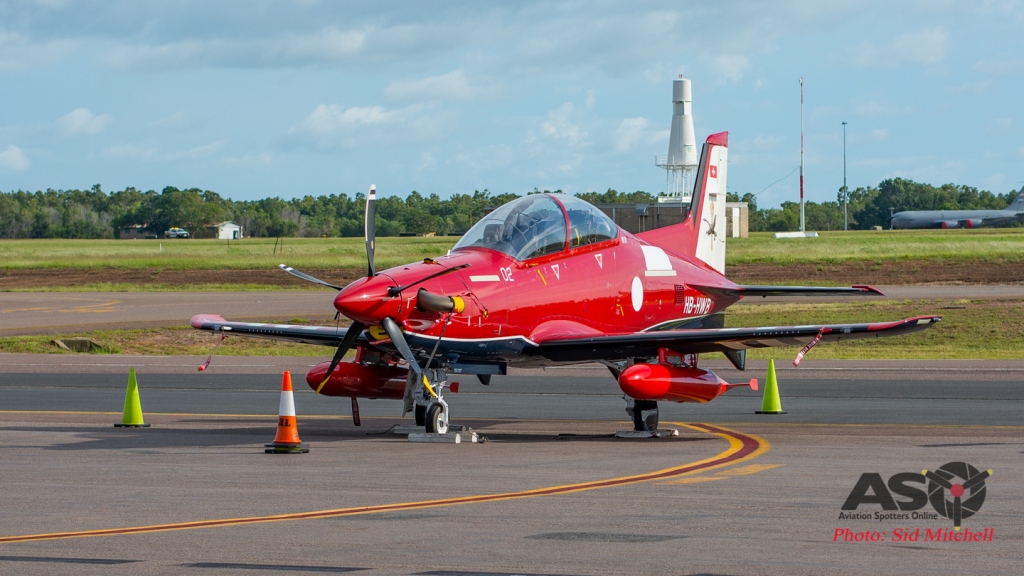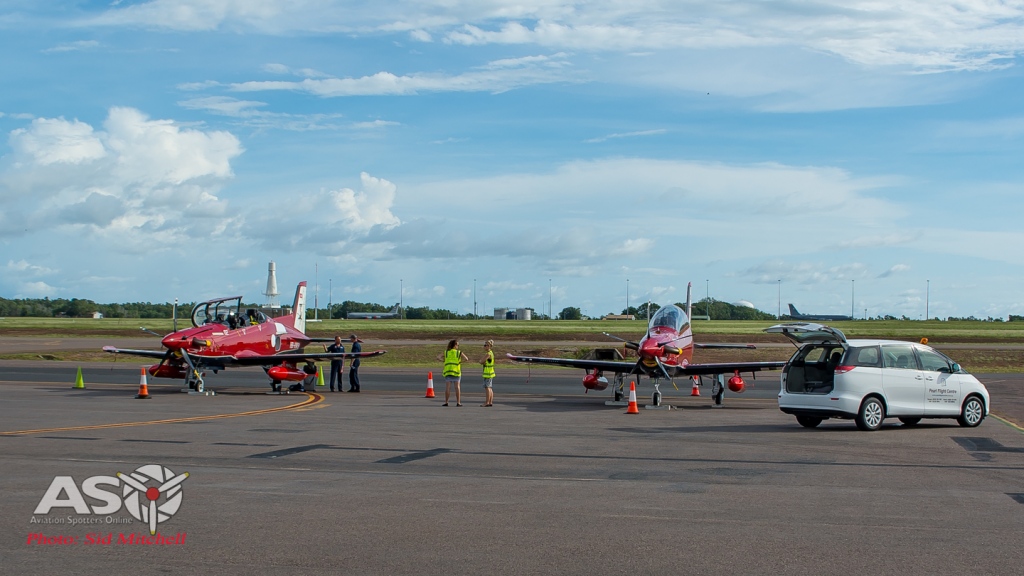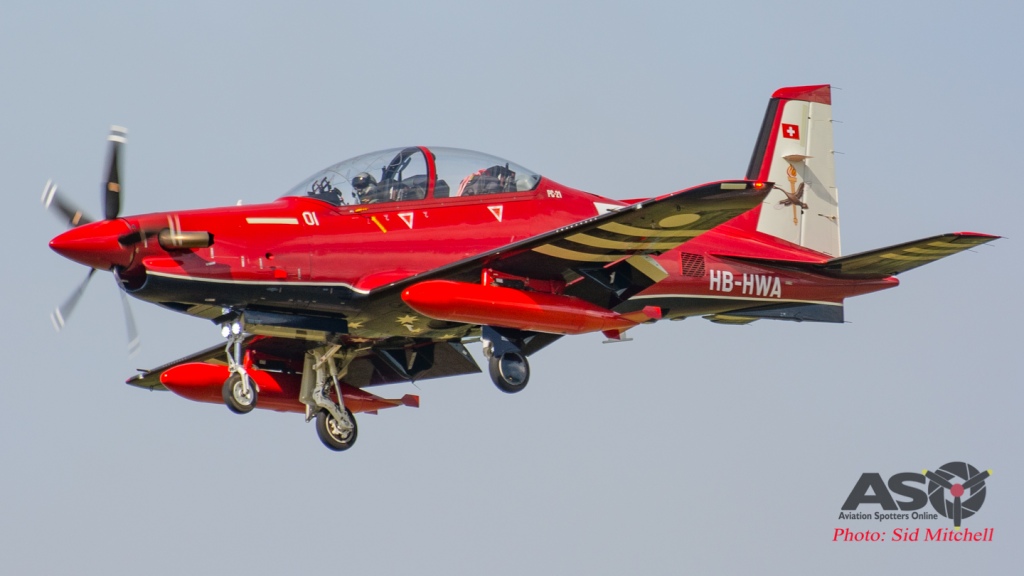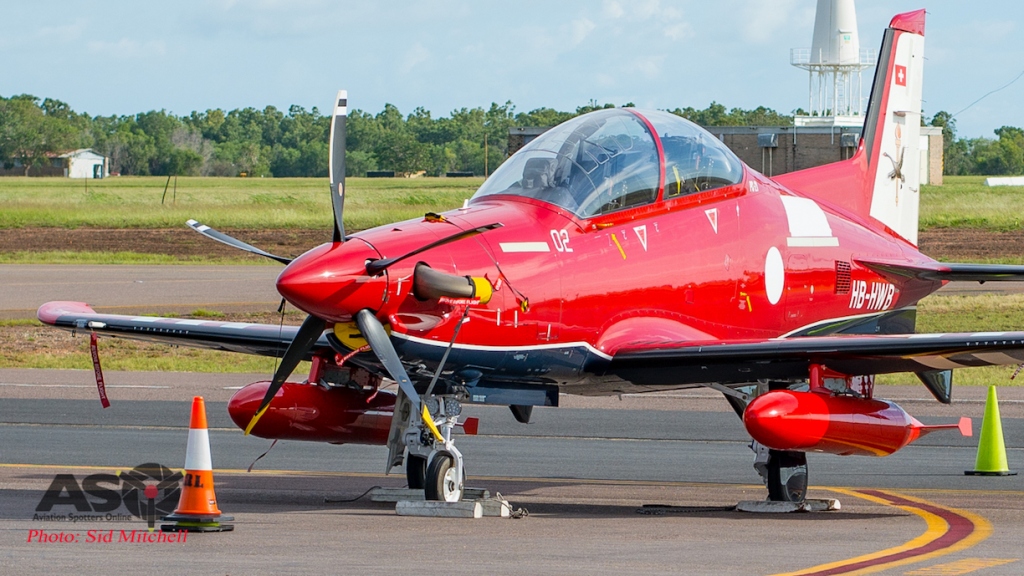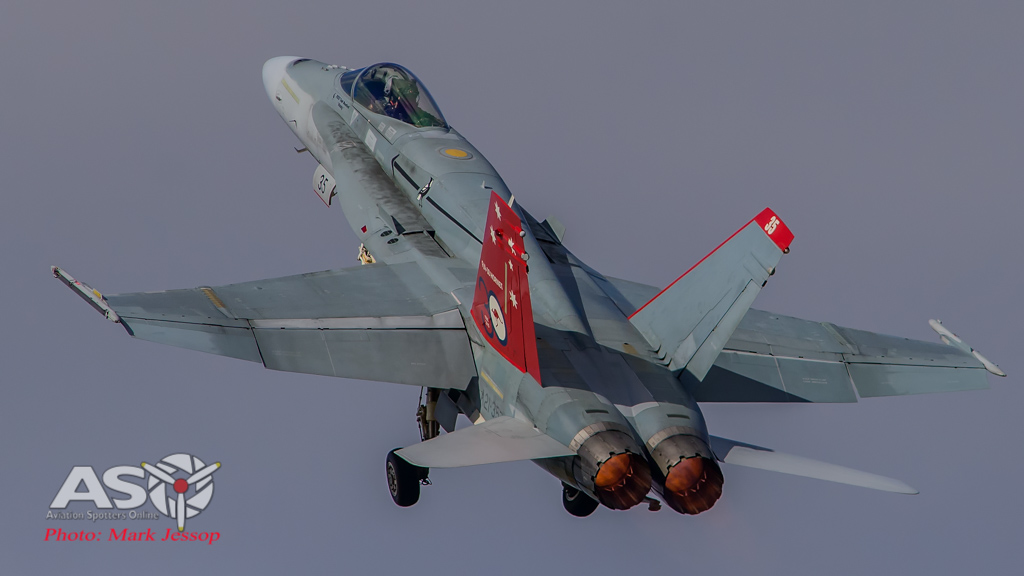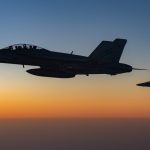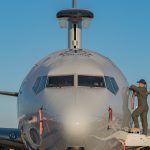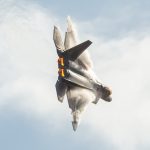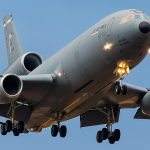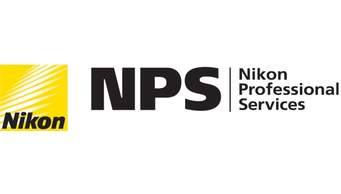On a humid Saturday afternoon, the latest additions to the Royal Australian Air Force inventory A54-001 and A54-002, touched down about 8 minutes apart at RAAF Base Darwin, Northern Territory. The two Pilatus PC-21 aircraft, both sporting the Southern Cross, ‘Invasion” stripes, and the No2 Flying Training School (2FTS) crest, have flown under Swiss civilian HB-HWA and HB-HWB registrations. They have almost completed their full delivery flights from Pilatus Aircraft in Stans, Switzerland to be handed over to the ADF as part of the AIR 5428 Pilot Training System project, and today at 5:30pm marked their landfall in Australia.
It has been a long series of flights for the two pilots lasting nearly a week, which has seen them traverse half way around the globe via countries such as Italy, Kingdom Of Saudi Arabia, Thailand, Singapore and Indonesia just to name a few. One of the longest legs was from Bangkok to Singapore across the Gulf of Thailand – a 3 hour stint mostly over water and not a problem for the aircraft cruising at about 280 knots.
After performing post flight checks, topping up the internal and external tanks, putting blanks and covers on, the two Pilatus pilots departed, leaving the aircraft on the civilian apron overnight until they next depart.
These two aircraft, A54-001 only having completed it’s first flight in July last year, are the first of 49 to eventually be delivered to the RAAF. They are the most advanced pilot training aircraft and will replace the current Pilatus PC-9A advanced trainer and CT-4B basic trainer aircraft and will be located at both RAAF Base East Sale in Victoria and RAAF Base Pearce in Western Australia. Basic pilot training with the CT-4B will continue at Tamworth, NSW.
With the planned retirement of the now old PC-9A, Pilatus places the PC-21 into the advanced trainer market as a 21st Century Trainer for a 21st Century Air Force and states the “PC-21 has better aerodynamic performance than any other turboprop trainer on the market.”
Powered by the proven Pratt & Whitney Canada PT6A-68B coupled to a five-blade Scimitar graphite propeller, it can deliver 1600 SHp propelling the PC-21 to a maximum operating speed of 370knots and to a maximum service ceiling of 38,000 feet.
Equiped with digital power management systems and auto-yaw compensation, hydraulically operated control surfaces, the PC-21 is designed to allow continuous low level high speed operations exceeding 320kts and using roll spoilers can deliver fighter like roll rates for the trainee.
The Pilatus in house avionics suite and cockpit design have been produced to mimic the latest front line fighters in current use. A glass cockpit utilising 3 main active matrix liquid displays (AMLCD) deliver a full systems, navigation and communications package including the standard Hands On Throttle And Stick (HOTAS) and Up Front Control Panel (UFCP). The step for the graduating pilot from this cockpit to the operation Squadron aircraft will be closer than ever before.
Capable of carrying 2535lbs (1150kgs) of stores on four under-wing and one centerline external stations, giving it some flexibility in performing the various roles intended by the Royal Australian Air Force.
No doubt once the serial number and RAAF roundel stickers are unveiled, the PC-21 will be warmly welcomed as a further extension to the constant evolution of training systems in our Defence Forces and certainly welcomed to Australian skies by many aviation enthusiasts around the country.
For a lot of the public, they will get to see the new Pilatus PC-21 at Avalon this year and get up close for a good look at the best trainer Australia could purchase for its up and coming pilots. We certainly hope to see more PC-21’s out and about as more are delivered over the coming years.
Cheers from the Top End… Sid Mitchell


